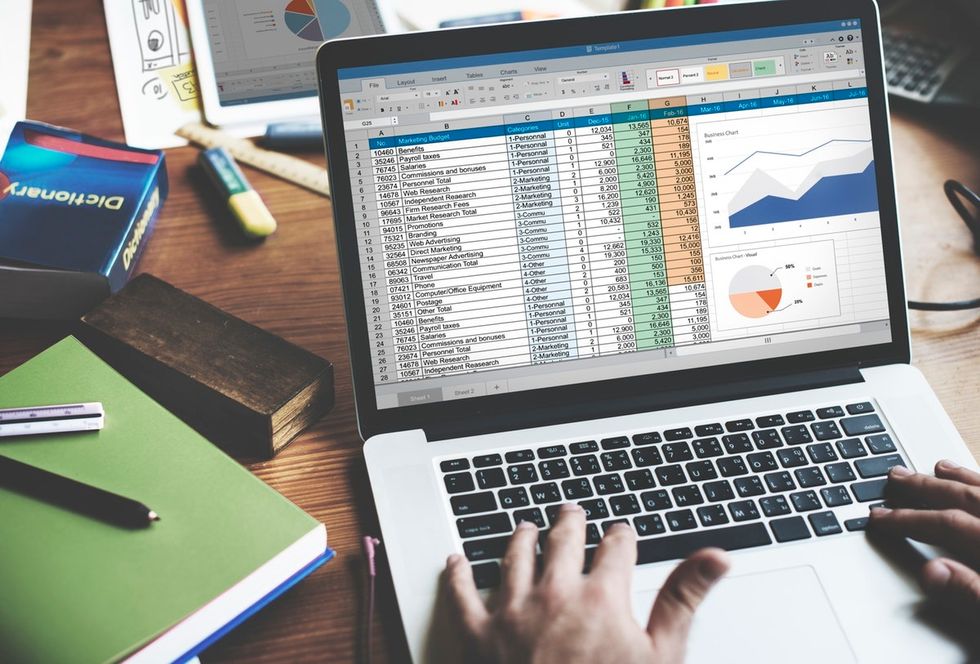No matter what you're studying in college, you're undoubtedly already thinking about what you could do to stand out in your field after graduation and give yourself the best shot at landing a job you love.
Getting to know data analytics could be one of the most advantageous things you do to set yourself apart from other young professionals. Here are five reasons why:
1. It'll develop your problem-solving skills
Data analytics is all about making sense of information by looking at various individual elements and concluding what they say as a whole. Today, many companies specifically use data analytics to solve problems and you can do the same while learning the basics.
Scrutinizing the information in methodical and critical ways — as data analysis requires — lets you see things about it that might not otherwise be apparent.
Plus, in the World Economic Forum's The Future of Jobs Report 2018, complex problem-solving is repeatedly mentioned as a trending skill that employers will want candidates to have in the coming years.
Problem-solving skills help you succeed in whatever you do, whether you're raising a family, excelling in your career or focusing on personal growth — especially when it's time to prioritize responsibilities and overcome obstacles.
2. You'll learn to look carefully at all the data sources you see
We live in an era where fake news is rampant, which means it's easy to get misled if you don't carefully examine all the information you see. Having a data analytics skillset will teach you to view charts, graphs and other types of data in ways you didn't before.
For example, if a diagram seems to show an extraordinary increase in a short period, you'll be able to determine how to gauge if the data is accurate.
Having that skill will come in handy because it lets you avoid making snap assumptions that could lead to ill-informed decisions or conclusions. After seeing a graph online in a news article, you'll likely say, "Let me take a closer look," instead of only "Hmm, that's interesting" and accepting the data at face value.
3. Most jobs require analyzing data in some capacity
Perhaps you can't envision how your plans align with data analysis at first but the truth is, almost any job could present situations where having data analysis skills pays off.
For example, maybe you're a drama major and will eventually become a member of a regional theater group that wants to apply for an arts grant.
If you're typically the person in the company who manages such things because the budget doesn't allow for hiring professional office staff, applying data analytics to show how attendance at your performances has steadily gone up could make your application more impressive.
Businesses of all kinds can benefit from data analysis, mapping or visualization, such as when learning about customers, addressing stakeholders or improving the look of public-facing materials. As such, many job advertisements request that applicants have basic data-related competences. By learning data analysis now, you can put yourself ahead of the curve.
4. You'll have a stronger appreciation for data stewardship
Organizations that deal with data often choose a person or team that takes responsibility for data stewardship. Data stewards are familiar with how information gets stored, used and collected. They typically set standards to ensure uniform practices.
Even if your career doesn't entail working as a data steward in an official capacity, it's still beneficial to understand the need and value of stewardship.
As you learn the foundational principles of data management, you'll start to recognize how to treat information in ways that align with privacy and accuracy needs. Later, if you hear a superior discussing a way to use data that doesn't seem responsible, you can speak up about your concerns and feel confident enough to go over them with authority.
5. Data analysis skills help you make information more applicable
People who don't know how to interpret data often seen it as figures, lines and shapes that seem as confusing as a foreign language. If you have data analytics skills, you'll be able to tap into the power of data storytelling. It makes information more relevant to everyday people by presenting it in formats they understand.
Data storytelling has applications in almost any industry, from marketing to health care. You could even use data storytelling to assert your views, especially when suggesting how a superior could make a positive change.
For example, you might use data from time-tracking software to show your boss you typically spend more than half your time working with only one problematic client. Then, you could build your case by mentioning how more resources would help you do your job better while increasing the chances of client satisfaction.
Data storytelling helps people answer the "so what?" aspect. It may help them make more beneficial decisions or glean different insights from the information that they would not have gotten if the material remained hard to understand.
Dig into data for personal betterment!
As you can see from this list, knowing data analytics principles and practices will help you throughout life, whether you're tracking your spending or helping your colleagues make an outstanding client presentation. Fortunately, you have numerous options for gaining this skillset.
There are many self-teaching resources and you can take online classes that suit a busy schedule.
Data analytics is a skill that can help you get ahead, no matter what path you choose in life.















